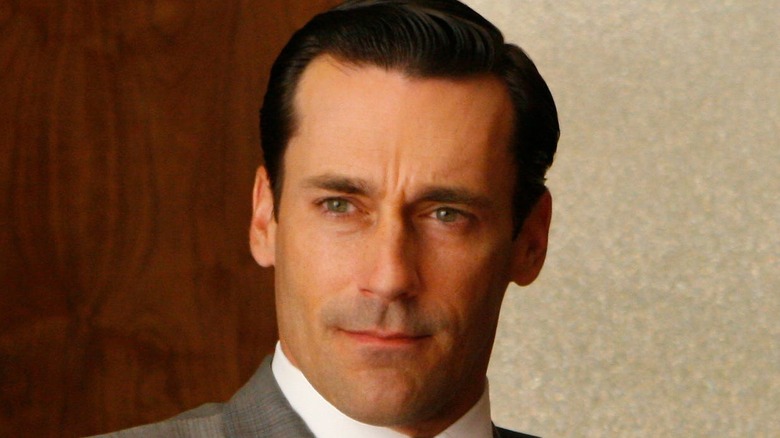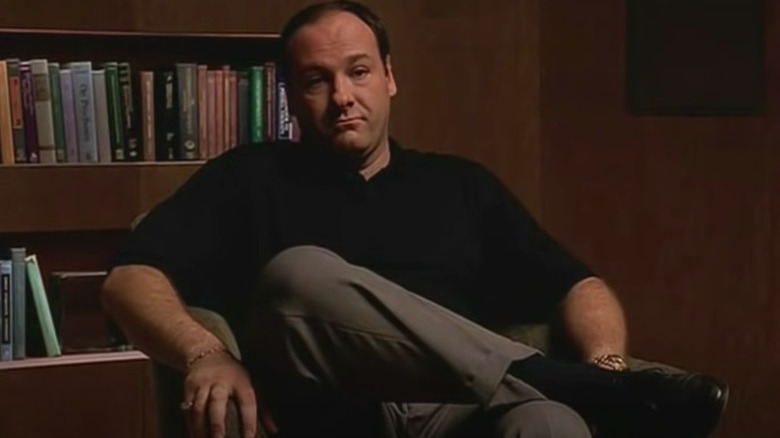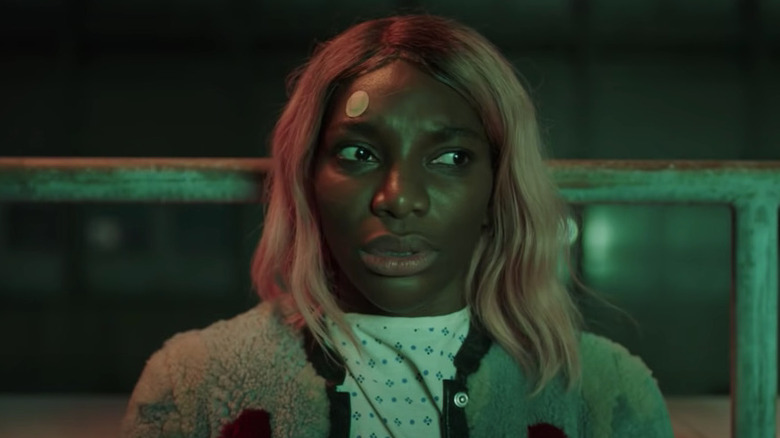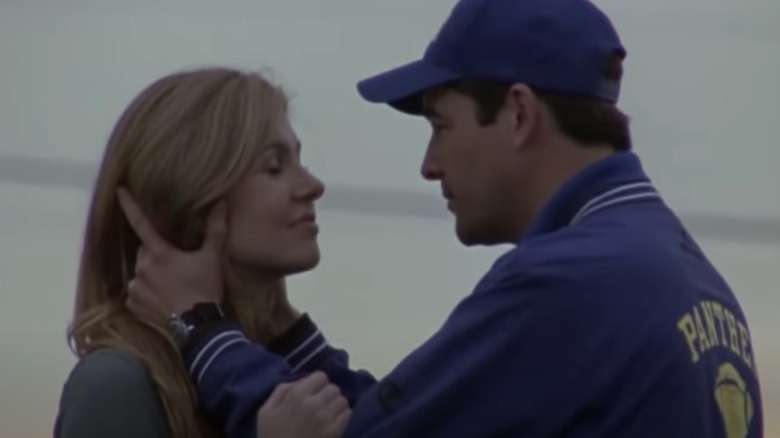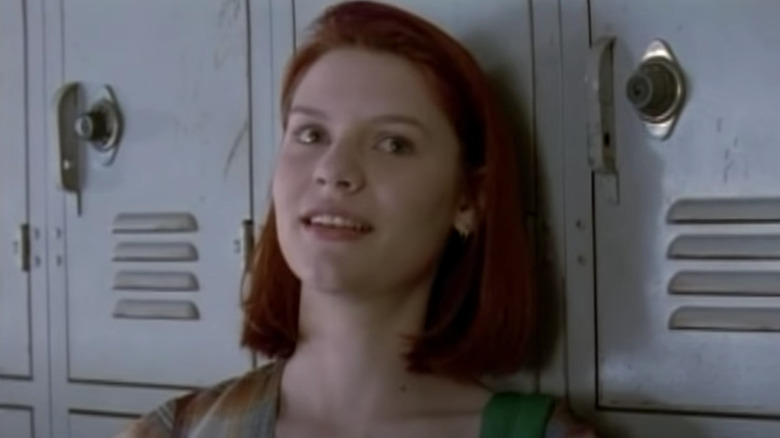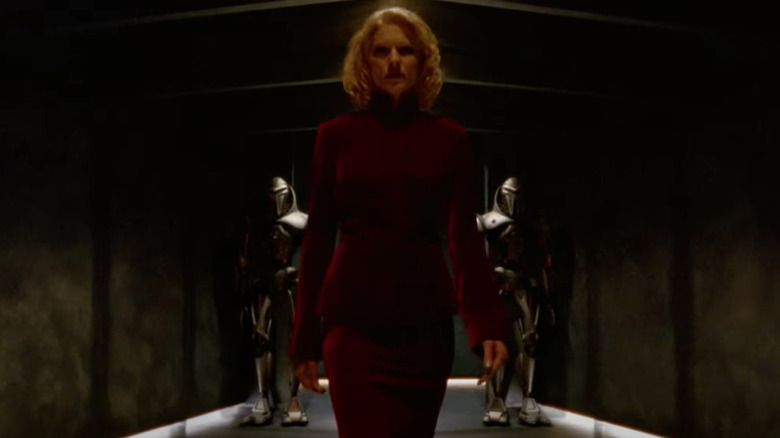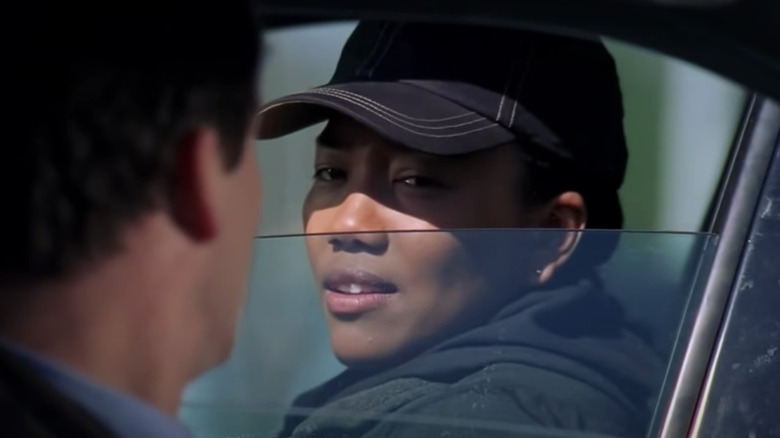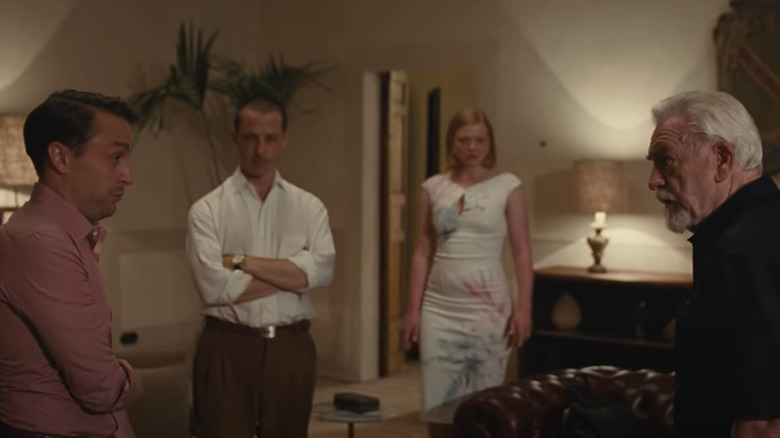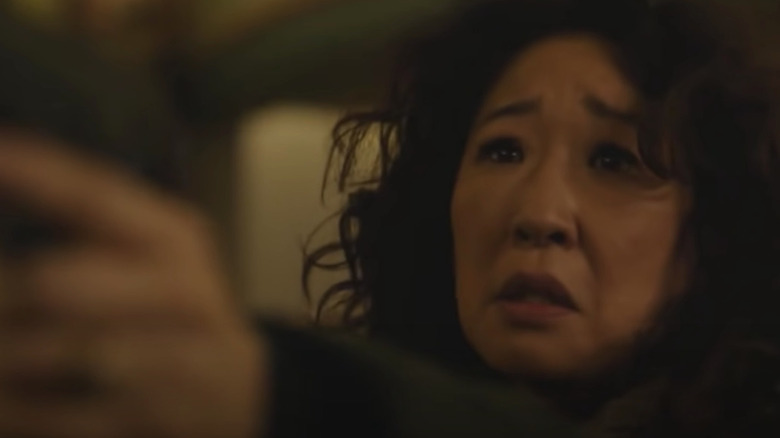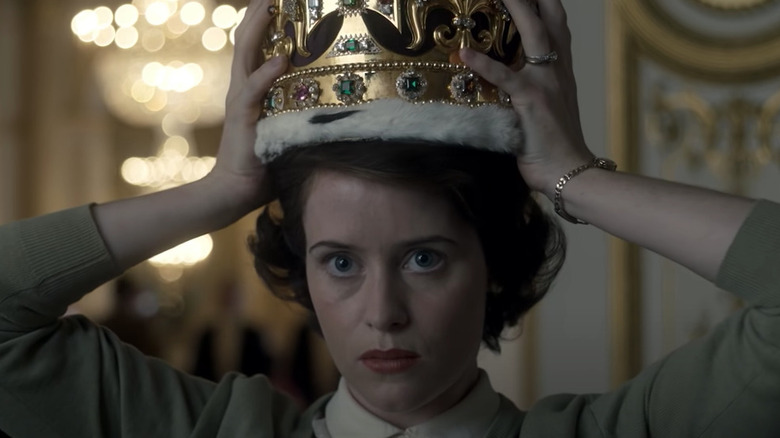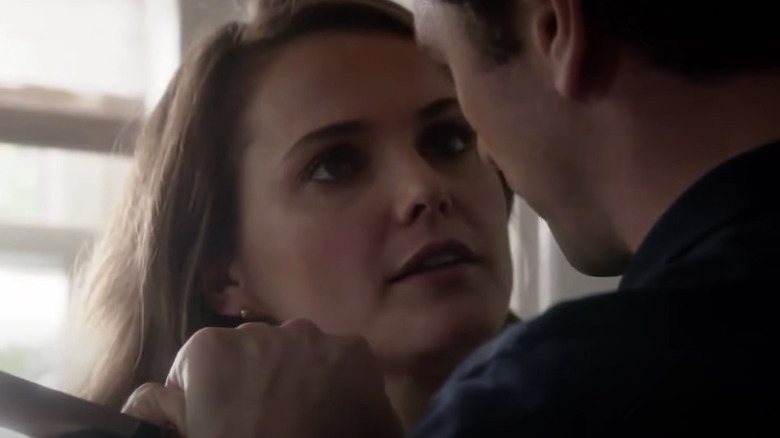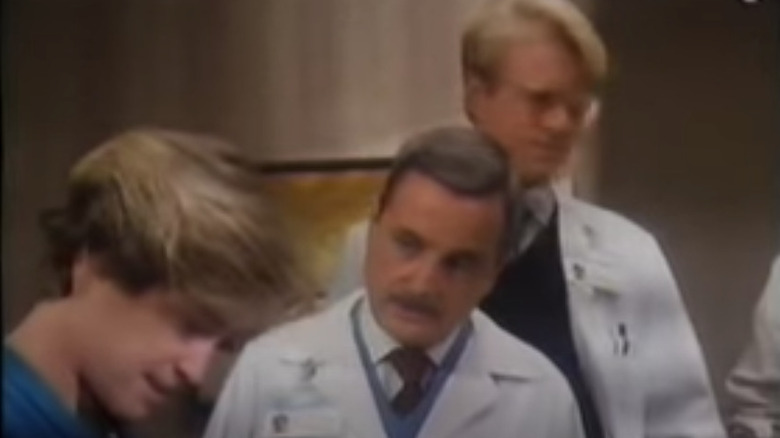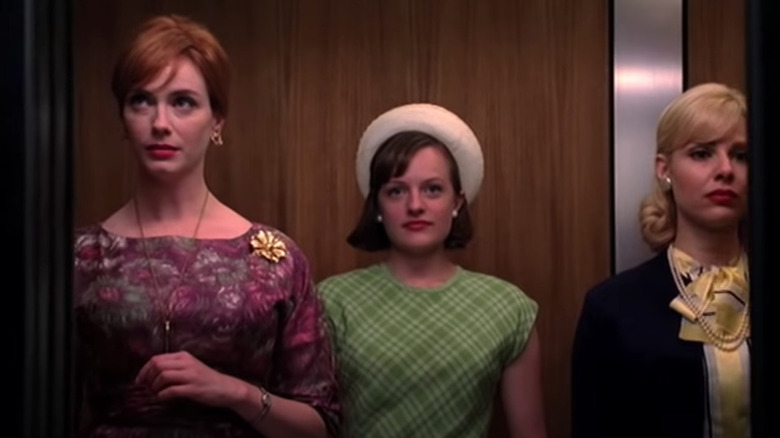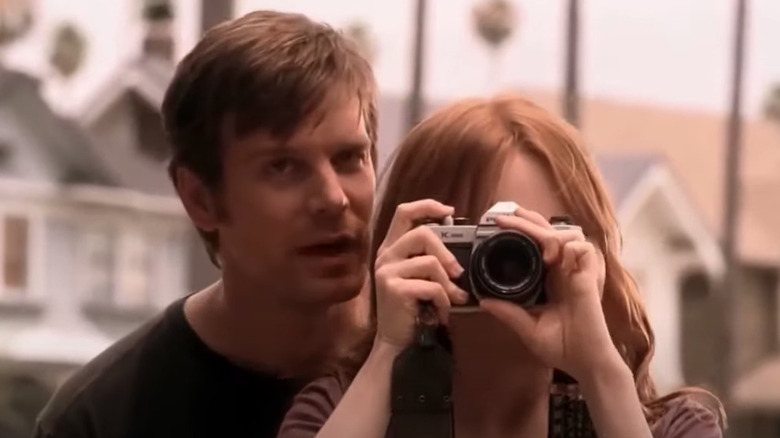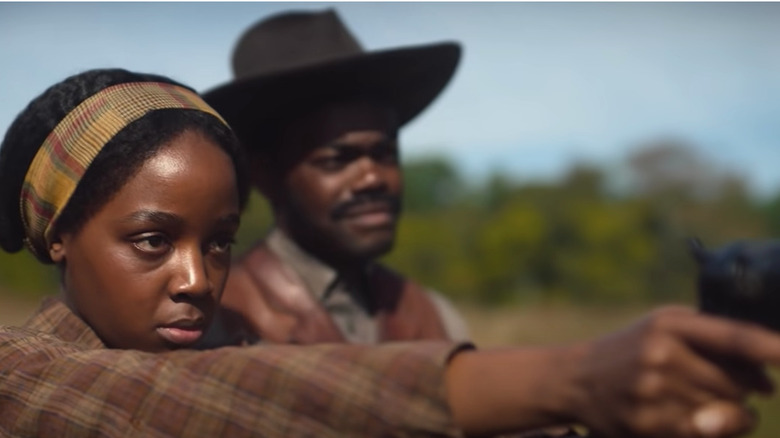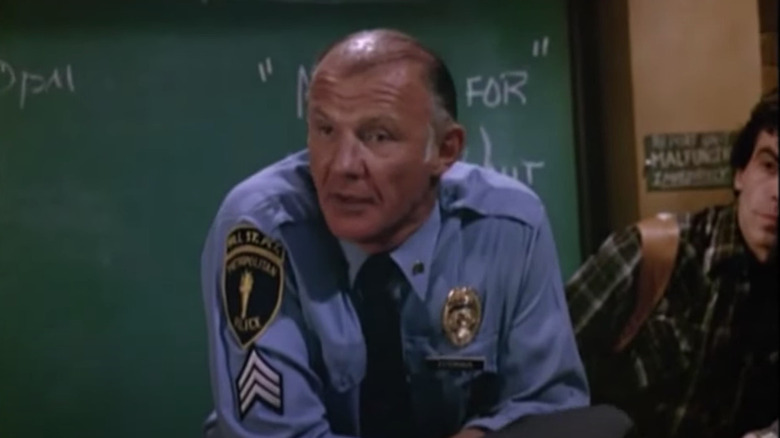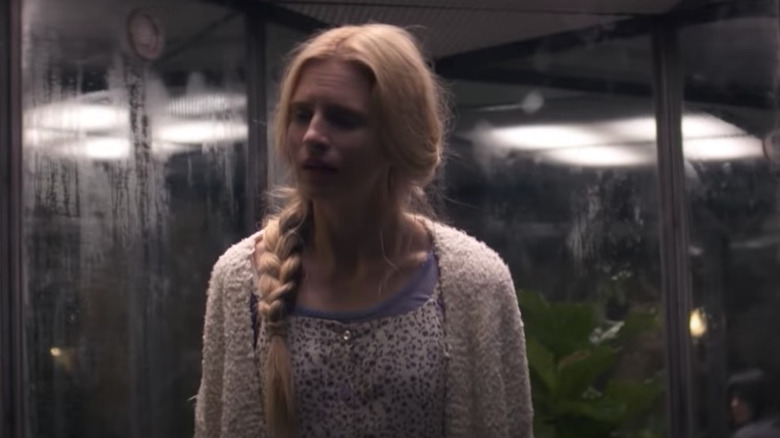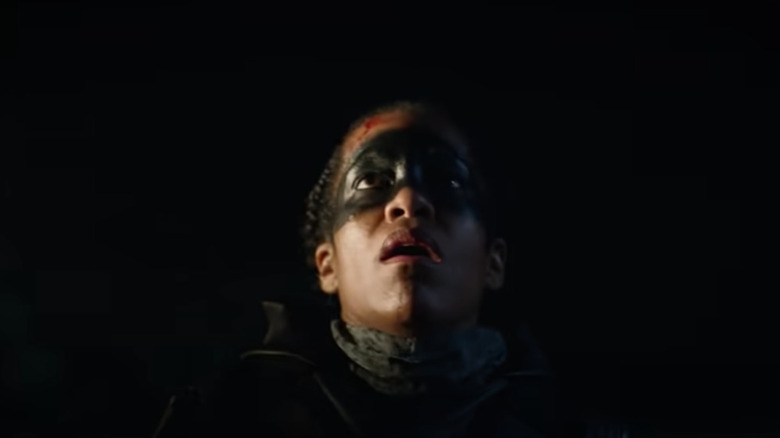The Most Rewatchable Drama Shows Of All Time
As we move into an era of seemingly infinite choices of what to watch, many are experiencing a sense of fatigue with this decision-making. Perhaps you know the feeling: Settling in to watch something for the night and then spending three hours scrolling through options before giving up and returning to an old favorite. Rewatching a beloved series can feel like reconnecting with an old friend: familiar, comfortable, but somehow refreshing. There's always something new to discover, especially when it comes to drama series filled with complex characters and storylines.
Television's original "Golden Age" took place in the 1950s, with the rise of live broadcasts and anthology drama series. But the premiere of "The Sopranos" in 1999 changed the game for prestige television and ushered in a new wave of "Peak TV" (a term coined by FX Chairman, John Landgraf). We're living it now, as networks and streaming platforms have elevated the standards of what TV can be, and are churning out the content to match. There are a lot of great dramas to choose from, many of which you can return to over and over again.
The Sopranos
It's impossible to talk about good television — or television, period — without mentioning "The Sopranos." David Chase's mob series premiered on HBO in 1999 and changed the face of television overnight. The show follows Tony Soprano (James Gandolfini), a mafia boss who starts seeing a therapist after suffering panic attacks. "The Sopranos" is more than just a crime show; the crime comes second to the dramatic and emotional content, as it revolves around the concept of family and the tragedy of feeling trapped. It showed people what television could be as it subverted expectations, and unearthed the layers of toxic masculinity, which had previously been rendered as aggressive and simplistic.
The effects of "The Sopranos" are still being felt today: Darker shows like "Breaking Bad" and "Mad Men" exist thanks to Tony Soprano's existential crises and moral ambiguity. Over 20 years after its premiere, "The Sopranos" still offers something new with each rewatch and can resonate differently based on where you are in your own life when watching. Life is never black and white, which is a truth that many earlier TV shows didn't quite grasp, but "The Sopranos" shows in vivid color.
I May Destroy You
British writer and actress, Michaela Coel, first made waves with "Chewing Gum," a sitcom she starred in and created. Coel then pivoted into drama with her limited series, "I May Destroy You." Based on Coel's own experiences, the show follows Arabella (Coel), a popular writer struggling to finish her next book, who is sexually assaulted one night while out with friends. "I May Destroy You" is dark, but also features Coel's biting wit as it explores themes of assault, trauma, and substance abuse in the world of Arabella and her close friends. Coel wrote, starred in, co-directed, and executive produced the series; she turned down a deal with Netflix to retain full creative control over her story (via Vulture).
It paid off, as the show offers a view of sexual assault and femininity not often seen on television. Coel made history as the first Black woman to win the Emmy for outstanding writing for a limited series, movie, or dramatic special in 2021. "I May Destroy You" isn't an easy series to rewatch, but thanks to the brilliant talent of Michaela Coel, it can be a cathartic experience.
If you or anyone you know has been a victim of sexual assault, help is available. Visit the RAINN website or contact RAINN's National Helpline at 1-800-656-HOPE (4673).
Friday Night Lights
"Clear eyes, full hearts, can't lose." This is the pre-game chant of the Dillon Panthers football team at the center of "Friday Night Lights." Based on H.G. Bissinger's nonfiction book of the same name, "Friday Night Lights" follows a high school football team in the West Texas town of Dillon. Eric Taylor (Kyle Chandler) is the new head coach, but he's so much more than that: father, confidante, or god-like figure, depending on who you ask (and if the team has won that week).
Viewers may not necessarily have an interest in football, but with "Friday Night Lights," they're suddenly drawn into a world where becoming a quarterback really does feel like a matter of life or death. It also helps that Coach Taylor and Tami (Connie Britton), his wife and the school's guidance counselor, may have the best relationship on television.
"Friday Night Lights" stands out for its storytelling as it paints a rich and complex picture of a small American town where issues like race, class, and education ferment. The series boasts an outstanding ensemble cast with stars like Chandler, Britton, and a young Jesse Plemons making up Dillon's community. "Friday Night Lights" is critically acclaimed and has found a strong fanbase because it connects with the heart, which makes it a prime candidate for an annual rewatch.
My So-Called Life
In the lore of television legends, there is the almost mythical category of shows that were canceled too soon. Cult classics like "Freaks and Geeks" and "Firefly" didn't make it past their first season, and for many viewers, "My So-Called Life" is the epitome of a great series that left the air too early. Winnie Holzman's 1994 teen drama follows 15-year-old Angela Chase (Claire Danes) as she navigates the ups and downs of high school with her best friends, Rayanne (A.J. Langer), and Rickie (Wilson Cruz, making history as the first openly gay actor to play a gay character on primetime television). Angela pines for her school's heartthrob, Jordan Catalano (a dreamy Jared Leto), and struggles to find herself somewhere between childhood and adulthood.
"My So-Called Life" is a time capsule of the 1990s and yet somehow ahead of its time, with its honest depiction of adolescence. While many would rather not return to their teenage years, "My So-Called Life" allows audiences to view them safely from afar. Although the series was critically-acclaimed and continues to be seen as one of the best TV shows of all time, it was canceled after just one season. But even so, that season is worth its weight in gold.
Battlestar Galactica
In 2004, "Battlestar Galactica" premiered as a reboot of a 1978 series (interestingly enough, another one-season wonder). The series follows a group of humans on the Battlestar Galactica spaceship, who have survived the destruction of their planets. They live under threat from the Cylons, androids who have revolted against their human masters. Led by Commander Bill Adama (Edward James Olmos), the Battlestar tries to flee the pursuing Cylons and bring the last remaining humans to the mythical 13th colony: Earth.
"Battlestar Galactica" is a sci-fi space opera: dramatic, emotional, and philosophical, the series questions what it means to be human. The initially clear-cut premise — robots versus humans — quickly gives way to something more ambiguous. It blurs the lines between "us" and "them" in a poignant and insightful way that speaks directly to the post-9/11 world and the war on terror.
"Battlestar Galactica" brings together different genres — sci-fi, drama, and action — to take viewers on a journey that's as thrilling as it is tear-jerking. It is one of those rare shows that's loved by both genre fans and more mainstream audiences, leading it to be one of the most rewatchable dramas around.
The Wire
"The Sopranos" initiated a new wave of crime dramas, and "The Wire" was one of the first to follow suit. Released in 2002, the series begins as a police drama that follows Detective Jimmy McNulty (Dominic West), who's trying to take down the Baltimore drug ring run by Avon Barksdale (Wood Harris) and his right-hand man, Stringer Bell (Idris Elba). "The Wire" follows a different aspect of Baltimore in each season and explores that institution's relationship to the police, whether it's the drug trade, the port system, or the city government.
"The Wire" offers viewers something new in its depiction of Baltimore and the deeper workings of the city, thanks to showrunner David Simon's intensive research for the show. Much of the cast is comprised of people of color and character actors, which allows the series to more authentically reflect the city itself, exposing these institutions and how they influence each other. The series' depiction of race, class, and sexuality, combined with its exploration of themes like surveillance, corruption, and the American dream reach depths that can only be accessed with multiple viewings. Critics agree, as the series has been hailed by many as one of the greatest television shows of all time; alternately funny and heart-breaking, "The Wire" is a show that always leaves more to be discovered.
Succession
Hell hath no fury like a billionaire scorned, and "Succession" offers this in spades. Jesse Armstrong's series premiered in 2018, following the Roy family, owners of Waystar Royco, one of the world's biggest media conglomerates. The patriarch, Logan Roy (Brian Cox), is considering stepping down and letting one of his kids take over, but things go awry, as they so often do, when money and power are involved.
Armstrong has noted that the Roy family is based on a combination of real-life figures like Rupert Murdoch and Queen Elizabeth and her son Charles, but the Roy family truly is all their own, with their unique brand of emotional damage and sociopathy.
The series' dark comedy can often mask the tragedy at its heart as each of Logan's children — Kendall (Jeremy Strong), in particular — desperately fights to win their father's love, no matter the cost. And the question of cost is a big one for this series. What does it cost to be loved by someone who can only love himself? What will it cost democracy to have all news owned by one company? Many see "Succession" as a modern-day "King Lear," and perhaps it's this Shakespearean tragicomic mix that keeps fans and critics wanting more.
Killing Eve
In the world of crime dramas, heaviness and intense emotion are the norm. But in the hands of Phoebe Waller-Bridge, a different approach is taken. Waller-Bridge, the star and creator of "Fleabag," is known for her sharp wit and unique style, which she brings to "Killing Eve" as a writer and producer. "Killing Eve" follows Eve (Sandra Oh), a bored MI6 agent obsessed with female killers, who's on the hunt for Villanelle (Jodi Comer), a creative and highly-trained international assassin. The two women become fixated on each other in this homoerotic cat-and-mouse thriller.
The chemistry between Oh and Comer makes "Killing Eve" fresh and exciting. Their relationship — "it's sexual, it's intellectual, it's aspirational," as Waller-Bridge describes it — is at the heart of this series (via The New York Times). "Killing Eve" is more than just a spy show, as it centers around two strong, independent women who don't feel seen, lacking a place in the world. However, they do find one with each other, and it's in this space of both love and hate that they feel alive. Upon its release, "Killing Eve" was one of the most critically acclaimed shows of 2018, and it has continued to draw in fans for first (and second and third) viewings.
The Crown
Outside of the U.K., Queen Elizabeth II was, until recently, seen primarily as an old woman who loves pink, pillbox hats, and corgis. That all changed with Peter Morgan's "The Crown," which follows the life of Queen Elizabeth II as she takes the throne in 1952 at the age of 25. The series moves through the decades as Elizabeth navigates her public and private life, through relationships with people like Winston Churchill, Margaret Thatcher, and Princess Diana. For the first two seasons, Claire Foy plays the young Queen Elizabeth II, while Olivia Colman steps in for the Queen's middle years in seasons 3 and 4.
"The Crown" takes one of the most recognizable figures in the world and shines a new light on her as it explores what it means for the monarchy to be brought into a modern era. Queen Elizabeth struggles with her new role, which offers a great amount of power while also rendering her a figurehead whose voice can often go unheard. The series explores the Queen's family, especially her relationship with her younger sister, Princess Margaret (Vanessa Kirby in Seasons 1-2 and Helena Bonham Carter in Seasons 3-4), who has less power but more freedom. With its combination of political intrigue, human drama, and an all-star ensemble cast, "The Crown" has become a beloved series for history buffs and non-buffs alike.
The Americans
The spy genre took off after WWII and the Cold War, as the United States was consumed by anti-communist paranoia, but Joe Weisberg gave the genre a twist with the release of "The Americans" in 2013. "The Americans" is set in 1980s Washington D.C., following Elizabeth (Keri Russell) and Philip (Matthew Rhys), a traditional American couple who happen to be deep undercover KGB agents. Elizabeth and Philip take on top-secret missions to help the Soviet Union during the Cold War, all while trying to raise their family and avoid the suspicions of their neighbor, Stan (Noah Emmerich), an FBI agent who works in counterintelligence.
Home is at the heart of "The Americans," as both Elizabeth and Philip navigate their relationships with each other, as well as the United States and the Soviet Union. Their marriage contains as many layers, secrets, and twists as the world of espionage. "The Americans" shows all sides of the Cold War and it lends itself to multiple rewatches as each viewing reveals something new, speaking to current anxiety around identity, privacy, and surveillance.
St. Elsewhere
Over a decade before "ER," and two decades before the release of "Grey's Anatomy," audiences could check themselves into "St. Elsewhere," the groundbreaking medical drama that premiered in 1982. This show follows a group of doctors at St. Eligius, a run-down teaching hospital in Boston nicknamed "St. Elsewhere," as it serves patients who get turned away from more prestigious and better-equipped hospitals. "St. Elsewhere" stands out for its strong ensemble cast (including Denzel Washington, Helen Hunt, and Howie Mandel with hair) and gritty subject matter.
Prior to "St. Elsewhere," doctors were represented on television as paternalistic superheroes: Healers with no issues, essentially. "St. Elsewhere" transforms the medical drama by introducing doctors who are flawed, and conflating the personal with the professional as they try to take care of their patients while sometimes coming up against their own struggles and dramas. "St. Elsewhere" added a much-needed human element to the medical drama and also spoke to the issues of the day: AIDS, cancer, and addiction, amongst others. The series was put on Hulu in 2018, allowing new generations to binge on a revolutionary show that preceded and influenced shows like "House," "ER," and "Grey's Anatomy."
Mad Men
Just five weeks after the series finale of "The Sopranos," television viewers found the next great American drama with the premiere of Matthew Weiner's "Mad Men" in July 2007. "Mad Men" is the story of Don Draper (Jon Hamm), a slick yet lonely and haunted ad man in 1960s New York. The series follows Don and his coworkers — the "mad men" (and woman; we love you, Peggy!) of Madison Avenue — as they sell the American dream to the masses (and themselves).
Weiner wrote the pilot for "Mad Men" before working as a writer on "The Sopranos," but collaborating with David Chase transformed how he saw his own show: "Whatever I had intended ["Mad Men"] to be when I wrote that pilot was very different after seeing how seriously David Chase took human behavior. Real human behavior," (via The New York Times). "Mad Men" became a phenomenon with its glamorous depiction of 1960s NYC advertising in addition to its always stellar cast. But it's what's under that shiny surface that makes "Mad Men" so loved: alienation, loneliness, and the question of who you are versus what people see of you. It's a series about identity as Don Draper unwittingly drowns in his, even as he's actively shaping the identity of the American people and their desires. "Mad Men" taps into the comfort of nostalgia and turns it on its head.
Six Feet Under
In the world of television, there are many tried-and-true subgenres: the crime show, the network procedural, and of course, the family drama. Released in 2001, "Six Feet Under" centers around the Fisher family, who come together following the death of their patriarch. Eldest son and semi-black sheep Nate (Peter Krause) inherits the Fisher Funeral Home along with his brother, David (Michael C. Hall). They and the rest of their family — angsty sister, Claire (Lauren Ambrose), and airy mother, Ruth (Frances Conroy) — navigate their grief and changing relationships as they keep living alongside the death in their funeral home.
"Six Feet Under" deals with the most dramatic of all issues — mortality itself — and infuses it with humor and surrealism while examining the question of how we can live out these brief mortal lives (answer: with love). "Six Feet Under" lives in the existential space as it moves between the personal lives of its characters and the profession of the death industry, which has led it to be considered one of the greatest television shows of all time. Its series finale in particular has stood out as one of the most poignant and memorable television endings.
The Underground Railroad
The newest addition to this current golden age of television, "The Underground Railroad" is an adaptation of Colson Whitehead's Pulitzer Prize-winning 2016 novel of the same name. Barry Jenkins is the main creative force behind this magical realist series about a literal underground railroad that helps slaves escape from the American South in the 1800s. "The Underground Railroad" centers around Cora (Thuso Mbedu), an enslaved woman who decides to take the secret, subterranean railroad and escape from Georgia once and for all — but she has to make it out before she's caught by Arnold Ridgeway (Joel Edgerton), a vicious slave-catcher who won't rest until he finds her.
Barry Jenkins made a name for himself as the director of films like "Moonlight" and "If Beale Street Could Talk," and he brings this powerful vision to Whitehead's words. "The Underground Railroad" deals in dark, heavy subject matter, but in Jenkins' hands, it's also beautiful, visceral, and hopeful. He exposes the realities of this nation's history, which drive the narrative much more than a fictional railroad. Although it's a limited series, it's one that is worth seeing more than once.
Hill Street Blues
What "St. Elsewhere" did for the genre of medical drama, "Hill Street Blues" did for the police drama. Its 1981 premiere introduced audiences to a gritty, human cop world they'd never seen. Steven Bochco and Michael Kozoll created this series about a group of cops working at the Hill Street police station in an unnamed American city. Captain Frank Furillo (Daniel J. Travanti) is the leader of this police station, and he's married to Joyce Davenport (Veronica Hamel), a public defender who offers the legal perspective in this world.
"Hill Street Blues" was the first show to do what has now become the norm for many: Combine the personal and professional in a realistic way. The cops on this show aren't just cops; they're actual people in uniforms who deal with their own problems while trying to do their jobs. The series is dark, funny, and built of interwoven characters and storylines, shadows of which can be seen in later dramas like "The Sopranos" or "Breaking Bad." In fact, CNN has called it "the most influential TV show ever," and the show's use of a diverse ensemble cast along with its treatment of issues like racism, addiction, and police corruption makes it feel surprisingly current.
The OA
While sci-fi has long been dominated by men, women are now finally being given an opportunity to enter the field. Brit Marling became a voice to be heard with her otherworldly films, "The Sound of My Voice" and "Another Earth." In 2016, she and collaborator Zal Batmanglij co-created "The OA," a sci-fi series about Prairie Johnson (Marling), a blind woman who disappears for seven years and is suddenly found alive and able to see. Prairie now calls herself "the OA," and invites four teenagers and their teacher to listen to her story. Together, they help her find missing people who have been taken to another dimension.
In addition to co-creating and starring in the series, Marling wrote "The OA," which bears her trademark stamp of storytelling that ponders questions of belief, faith, and imagination. Marling published an op-ed for The New York Times about being typecast in Hollywood and writing a different type of strong female lead who exists outside of the parameters of masculinity. "The OA" achieves this, as it offers viewers a new kind of female hero, and a new style of sci-fi that lives more in an emotional and dramatic space than its more traditional predecessors. Although Marling and Batmanglij had mapped out five seasons of "The OA," sadly Netflix canceled the show after just two (and on a major cliffhanger at that), but there's enough for audiences to watch more than once.
Watchmen
Damon Lindelof created "Watchmen" as a limited series for HBO, which he called a "remix" rather than a "reboot" of Alan Moore's iconic 1986 comic. This "Watchmen" takes place in 2019 in the same universe as Moore's story: Where superheroes were once an active and known part of society, but then were outlawed in the '80s for their violent vigilante behavior. The series centers around Tulsa Detective Angela Abar (Regina King), who survives a white supremacist attack on her police department and later tries to track down the group responsible with the help (and hindrance) of some old superheroes.
Lindelof promised that the tone "will be fresh and nasty and electric and absurd" (via Instagram) and the series delivers on this. Its powerful ensemble cast — including Jeremy Irons, Lou Gosset Jr., and Jean Smart — brings Moore's "Watchmen" to life. Meanwhile, Lindelof's framing of the series around the historical event of the 1919 Tulsa massacre allows us to view the show with a contemporary lens that speaks to disparate issues of race, police corruption, and femininity. Whether you're a fan of the comic or are unfamiliar with it, you can find a rich, complex world in "Watchmen," one that will reveal itself more with each viewing ... like a Rorschach test.
